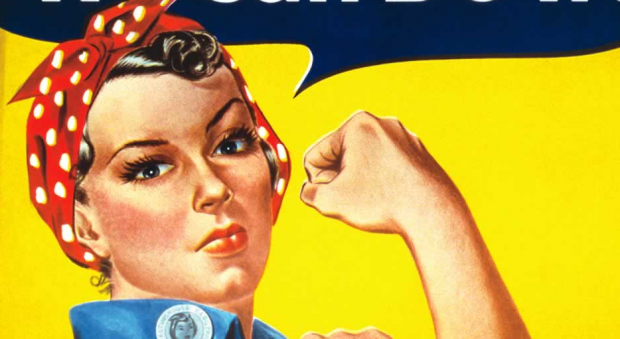This is a guest post from TallahasseeScene’s Taylor Silver
I was on YouTube recently, going down the rabbit hole of Beyoncé interviews, as one does. Usually when I’m stuck with an advertisement, I wait out the five seconds before continuing on to the video. But, this particular ad held my attention.
It was a Pantene commercial introducing a new campaign called “Not Sorry #Shinestrong.” The premise of the commercial involves a bunch of (thin) women (with gorgeous hair) who apologize prior to talking to a male. For example, as a man sits besides a woman, his elbow rubs against hers. The woman instinctively apologizes, though it isn’t her fault. Pantene’s message is for women to stop apologizing and to be unafraid to assert themselves in the company of men. This is a solid, pro-feminist message overall. There’s no refuting that. But, what I am debunking, is Pantene’s advertising strategy coyly disguised as an anti-sexism PSA. It’s almost embarrassing to watch. Does the #Shinestrong suggest that I can only be self-assured as long as I have luxurious tresses? It’s a poorly worded message. Besides the obvious “What does this have to do with shampoo?”, this commercial is just another manifestation of big companies using positive messages solely to sell products.

Pantene isn’t the first company to do this. A few weeks ago, Always unveiled their #LikeAGirl campaign. They released a video, which has now gone viral at over 35 million views, asking young women to perform tasks including “running like a girl.” These young women ran in place daintily and without effort. But, when the question was posed to young girls, these young girls exuded more confidence and ran with all their effort. The takeaway from this commercial is that we are told that doing things “like a girl” has a pejorative connotation as we get older. I enjoyed this commercial, and I still do. It’s certainly more subtle and sincere compared to Pantene. But, what I still find problematic, is using feminism as a marketing ploy.

Both campaigns include a #hashtag, which is a trendy and clever way to get people to talk about the companies on sites like Twitter, Facebook, and Tumblr. The more exposure, the better the profits. I saw many of my peers on every social media site praising Pantene and Always for their efforts. In a similar way that Chick-Fil-A’s anti-gay leanings caused an uproar that resulted in people boycotting the business, people who align with Always’ and Pantene’s beliefs are more likely to buy these companies’ products. I’m an English major, NOT a business major, but these tactics are evident to anyone with a pulse.
It does seem to be a trend too, with Pantene and Always following Dove’s lead in successful national campaigns marketed towards women. Dove also had good intentions with its “Real Beauty” campaign, but what Dove was doing was selling a message first, then a product second. Further, Dove is owned by Unilever, a company that also owns Slim-Fast and Axe. I find it a little ironic in trusting a brand whose sister companies promote unhealthy weight loss and create sexist commercials marketed to douchey teenage boys, respectively. And I find it even more ironic that a company that sells beauty products is telling me that I’m already beautiful. One woman commented on Dove’s Facebook page and said “Implying that women all hate themselves for stupid reasons that don’t exist is not empowering or comforting. Stop pseudo-psychoanalyzing us in an attempt to make more profits for your soap products.”

Now we’ve reached the point in the article where I have to concede. No matter what the means, spreading feminism is a good thing. Teaching young women to have confidence in themselves for a profit is a far better approach than the rampant sexism you see in beer commercials and Michael Bay trailers during the Super Bowl. In the Don Draper days, this method of advertising was unheard of. Further, I’m not calling for companies to stop promoting pro-feminist ideals entirely. I just wish people would acknowledge what is known as “Trojan Feminism”, and to stop commending companies that are, at their core, just trying to sell stuff.
Now, I’m going to go back to YouTube and listen to Chimamanda Ngozi Adichie’s part in “Flawless.” Because that is real, unmanufactured feminism that isn’t being sold to you alongside anti-aging wrinkle cream.
Featured photo courtesy of evfxonline.com





